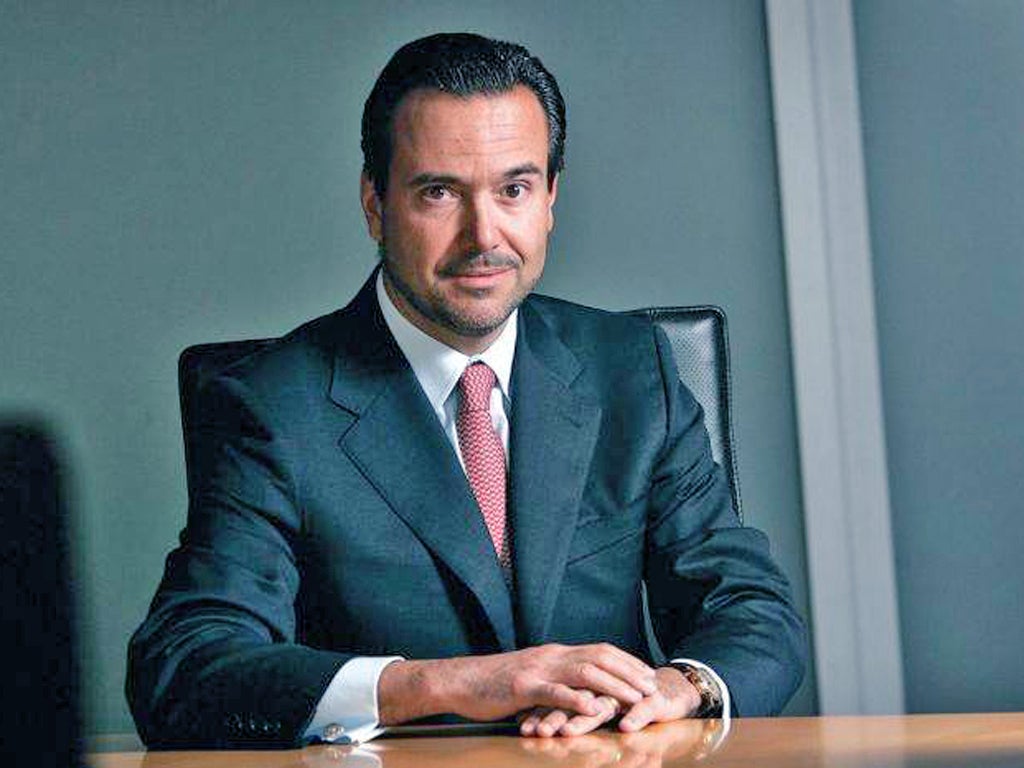Lloyds is out of state hands. Here's why that's no cause to be rejoicing
The bank is an extremely powerful institution and will need to be kept on a short leash

A landmark? It’s certainly that. After eight years and £21.2bn of shares sold and dividends booked, Lloyds Banking Group is back in private hands.
The business would clearly like us to cheer that fact, splashing “The Group Returns to Private Ownership” across the home page of its website atop what is actually a slightly scary picture of chief executive Antonio Horta-Osorio. His eyes bore into the camera lens with an expression that is somewhere in between a smile and a grimace.
Click on through (if you dare) and you’ll find a blizzard of stats, largely focussing on the period between 2012 and 2017 – in other words, on Mr Horta-Osorio’s tenure as CEO.
There is a timeline, lots of colourful graphics and a big pic of the famous black horse, as well as a glossy corporate video complete with a newly written jingle (whoever composes those must make a mint).
It is very clear that the bank has spent a lot of time and money preparing for the announcement, in contrast with UK Financial Investments, the government agency set up to manage the state's banking interests. You'd think it would also be celebrating, but there is no mention of the news on the homepage of its rather spartan website. The most recent notice dates back to March and concerns the sale of £11.8bn of Bradford & Bingley assets.
Given that the bailout of Lloyds should never have happened, its low-key (or rather no-key) approach seems rather more appropriate.
Lloyds touts that taxpayers made £894m more than the state’s original investment of £20.3bn.
However, in real terms we lost money on the deal. The bailout tied up a big slug of taxpayers’ capital, and the Government had to borrow more money as a result.
Even though it could do that very cheaply, it will have paid a lot more than £894m in interest. And, remember, we’re just looking at Lloyds here. The real bad boy of British banking, Royal Bank of Scotland, is still 73 per cent owned by taxpayers, and we’re being prepped by the Government for a thumping loss if, when, its sale process is heated up again.
The banking industry, and especially its watchdogs, must never be allowed to forget how we got here.
But to the future, which raises still more questions for those charged with ensuring that the industry behaves itself.
Lloyds, and its multitude of different brands, account for one in every four mortgages advanced in Britain. They boast 22 million current account customers and 21 million savings customers. Some 1 million small and medium sized enterprises are on the bank’s books, along with 26,000 bigger corporates.
This is a hugely powerful institution, one that has enormous clout across a range of business areas. At a time when low interest rates have squeezed margins across the industry, Lloyds has been able to increase them (see its most recently results). Given its power, perhaps that shouldn’t be so surprising.
Of course, the fact that bank now appears to be singing, and is no longer tieing up great slugs of state capital, is good news.
As Lloyds is at pains to stress “we play an integral role in the UK economy”.
A strong, and profitable, Lloyds has the capacity to lend and to support that economy at a time when it rather badly needs it.
But you can have too much of a good thing. Let's not forget that this institution has hardly been scandal-free during the years of the transformation that Mr Horta-Osorio’s video gushes over.
It was part of the Libor rate rigging scandal (and was fined heavily). Another big penalty was imposed over the mishandling of complaints about payment protection insurance.
Business news: In pictures
Show all 13Then there was the salesman who missold himself a life insurance policy in a flailing attempt to hit the sales targets he was being asked to meet as part of a remuneration policy that led to, you’ve guessed it, another big fine.
More recently, disturbing questions have emerged over how the victims of a huge banking fraud perpetuated at Lloyds’ HBOS subsidiary have been treated (a review is underway).
It may be out of state hands. But the state’s regulators will need to keep this institution on a short leash.
Subscribe to Independent Premium to bookmark this article
Want to bookmark your favourite articles and stories to read or reference later? Start your Independent Premium subscription today.

Join our commenting forum
Join thought-provoking conversations, follow other Independent readers and see their replies